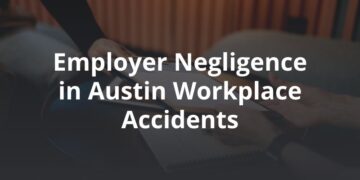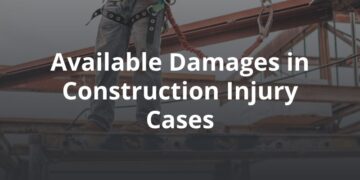Investigating Fatal Car Accidents
When a loved one dies in a fatal car accident, family members immediately experience a flood of emotions. Shock, anger, and grief are commonly experienced by survivors of those killed in fatal accidents.
For some, this may be their first time having to deal with an immense tragedy, and they may be feeling lost and confused. Others may have experienced tragedy in their lives, but that does not make it any easier to cope with the sadness and loss.
While the ways we grieve vary, one thing rings true for most surviving family members — a desire to know what happened and who is at fault. This desire for information is important for many to feel a sense of closure, but it can also be crucial in the event that the deceased’s family wishes to file a wrongful death lawsuit.
If you have lost a loved one in an automobile collision, you are likely wondering how long it will take for the accident to be investigated so you can begin to take steps toward closure. In an accident as serious as a fatal car accident, accident investigators must examine a number of elements to determine what happened, a process that might take two months or more.
How Are Fatal Car Accidents Investigated?
To understand how long an investigation might take, it’s important to have a grasp on what the process entails. Police who arrive at the scene of a car accident resulting in death are the first investigative personnel. Police are required to file their reports with the state. States have dedicated agencies devoted to investigating and reviewing data on automobile accidents, generally as part of the state’s Department of Transportation.
In Texas, law enforcement on the scene — whether affiliated with the city, county, or state — are required to submit Form CR-3 to the state, known as a crash report. The information on this report includes:
- Date of the crash
- Location of the crash
- Identifying information about the vehicles, drivers, passengers, and pedestrians who may have been involved
- Drug and alcohol test results for drivers
- Medical attention received by any person involved (and whether or not they were deceased at the scene)
- Damage observed by the officer
- Charges filed in the case
- Factors contributing to the accident, such as weather
The initial report is as detailed as possible, and all officers are trained to collect the most basic information necessary to reconstruct and evaluate the scene of an accident. They do so by following approximately the following steps:
- Respond to the traffic crash scene safely.
- Assess the scene of the crash.
- Secure a safe work environment at the crash scene.
- Provide emergency medical assistance to injured people, if necessary.
- Obtain pertinent information for the crash report from those involved, the scene itself, and any eyewitnesses.
- Review the crash report to determine how and why it occurred.
- Return the scene to normal as quickly as possible.
- Complete a driver exchange of information.
- Take any necessary enforcement action.
- Document the crash and submit documentation to the state.
Sometimes, police or investigators from the Department of Transportation may need to conduct more thorough forensic investigations. In these cases, the investigators will sometimes even reconstruct the accident, which is often done virtually.
Collecting information as soon as possible is important in order to ensure that any necessary reconstruction or forensic evidence presented in any future claim is as accurate and thorough as possible.
Can I Hire a Car Accident Reconstructionist?
When accidents are fatal, first responders may be the first to reach out to an accident reconstructionist. However, any party involved in an accident — especially in a wrongful death lawsuit — may want to hire their own accredited accident reconstructionist in order to get a picture of what happened.
Accident reconstructionists incorporate a variety of evidence in their analysis in order to draw conclusions about the events of the fatal accident, such as:
- What types of vehicles were involved in the crash, including their size, weight, and other physical factors
- Where and how vehicles were damaged
- What drivers were doing leading up to the crash
- What speeds and directions the vehicles were traveling
- How the roads are constructed in the area of the crash
- What the weather was like at the time of the crash
- What injuries the victims experienced
Car accidents are traumatic. Sometimes, eyewitnesses or survivors of the crash cannot recall the exact details of what happened or they may be too severely injured to remember or communicate the events of what happened.
If there are no survivors and no eyewitnesses, physical evidence is especially crucial to demonstrating what happened and potentially proving a wrongful death claim against the estate or employer of the at-fault driver.
A skilled reconstructionist may be needed in order to:
- Calculate the vehicle speeds and movements at the time of the crash.
- Evaluate the physics of the accident scene and draw conclusions about the event.
- Determine the sequence of events to establish how the damage occurred.
- Determine the positions of the vehicles and whether the drivers could have avoided the accident.
- Establish whether the people involved were wearing their required seatbelts.
- Determine if any drivers accelerated before the accident or attempted to brake.
Sometimes, people are afraid to admit what happened during an accident or may be concerned that their testimony will be damaging to someone they care about. While eyewitness testimony is important, an objective, scientific perspective of the accident is an invaluable tool when proving a wrongful death claim.
While there are no easy, definitive answers as to a timeline for each individual investigation into a fatal car accident, contacting an attorney as soon as possible can help you understand the investigative process better and perhaps expedite the process should an independent investigation become necessary for a lawsuit.
How Can the Attorneys at FVF Help?
The burden of a tragic and unexpected loss of a family member can be overwhelming. Even if you believe that you may have a right to seek justice and even financial recovery after losing a loved one in a fatal car accident, you may not know where to begin.
Reaching out to a traffic accident lawyer near you can be a first step. We can help by requesting copies of crash reports, consulting with expert witnesses, and even negotiating with insurance companies so you won’t feel pressured to accept a low-ball settlement. Just the preliminary investigation by the authorities may take two months or more to complete, but you should speak to an attorney as soon as possible to ensure that valuable information is not lost.
FVF Law’s car accident lawyers in Austin are here to listen to you and offer advice and guidance on how to proceed with your case. We offer no-cost consultations and will never pressure you to hire us. Additionally, we always operate on a contingency fee basis, which means if you do hire us, our fee is transparent right up-front as a percentage of the total recovery awarded in your case.
If you believe you have a need for a lawyer to help investigate a fatal car accident, contact us today to schedule your free consultation with an Austin wrongful death attorney.







